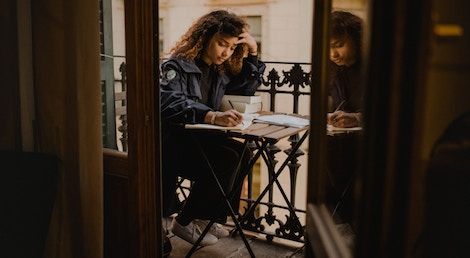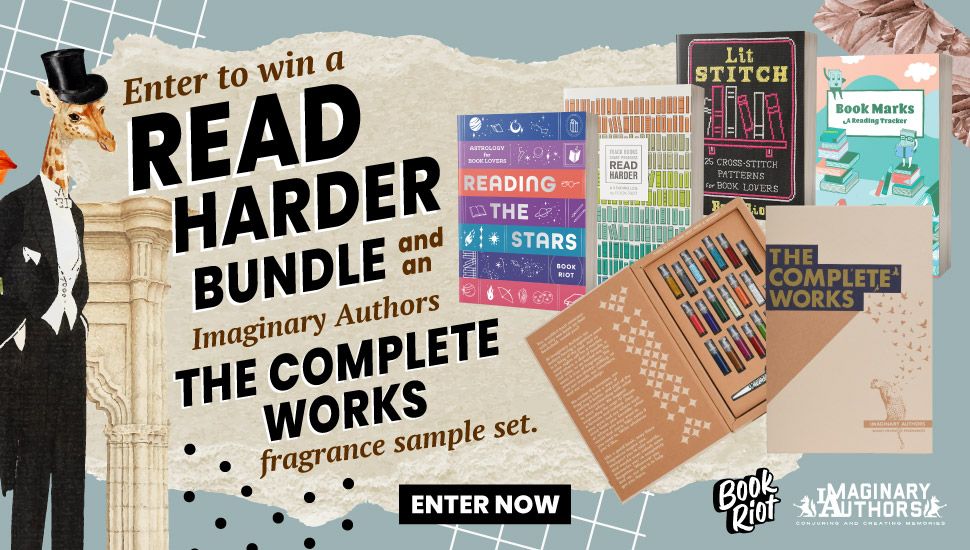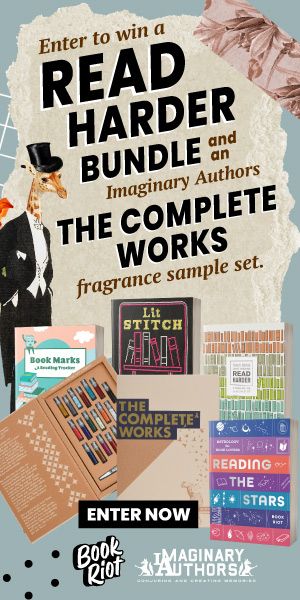
Why Writers Should Read Nonfiction
If you’ve ever picked up a pen or a keyboard to write a story, you’ve probably heard the eternal chant of a thousand creative writing teachers: writers read. You can’t write if you don’t read. There will always be would-be writers who will nay-say this philosophy; people who are supposedly incredibly talented but somehow magically get away with never reading the work of others in their field. But among the multitudes, those voices are (thankfully) few. Most writers, either established or aspiring, will agree that you can’t write a book if you’re not willing to pick one up.
Really, reading fiction is often an even better method of learning to write than any formal class or workshop you can take. Which is not to say that classes and workshops are not useful. Classes can point you towards clever models to study, and they can give you a source of instant critique that can help you grow as a writer. But ultimately it is reading that teaches writers, among other things, the shape of a plot, the expectations of their future readers, how to pace their work, how to convey a tone, set a scene, and build a character. Writers learn from picking up someone else’s book as much as they learn from writing their own. And, since someone writing a book is most likely also a lover of books, it’s not really a hardship to study up on your craft.
But what I didn’t learn until this year, was that reading the sort of fiction you want to write—while always advisable because it teaches you so much—isn’t enough to inform your writing entirely on its own.
Writers need to read, alright. Writers need to read nonfiction.
I was today years old (well technically last-January years old) when I learned that if I wanted to write, even if I was writing a completely secondary world fantasy story, I needed to do my research. Now I’ve done my time in higher education, and compiled my fair share of research papers (often at 3 AM under the influence of too much caffeine—hey I embrace my stereotypes) but one thing I never did, in all those years that I was writing creatively as well as critically, was think to apply my research skills to my fiction.
However, along with “writers read,” the other thing you’ll often hear writers espouse is the need for diligent research, no matter what your work-in-progress (WIP) is about. Research is an integral part of telling a story. Even if your novel is high fantasy and full of complex worldbuilding, that fictional setting of yours will still be informed to some degree by real information. To fill those gaps, you need to break out the books and do your research.
For example: You can invent places, and cities, and people, but you might still need to understand the care and keeping of horses, the finer points of weaponry and armor, how to scale a tower, or blow up a city with barrels of flour.
Until I started doing research for a WIP this last year, I never used to read nonfiction. Even in school I resented having to pick an academic paper or research text over my current fiction read. Now I’m an information fiend, with a whole new appreciation for my most neglected category. I check the new and upcoming nonfiction categories more religiously than I check on new releases in my favorite genres, and I have two separate wishlists of nonfiction titles that just keep getting longer.
I’ve added microhistories like The Secret Poisoner: A Century of Murder by Linda Stratmaan, about poison in the Victorian Era, or Milk of Paradise: A History of Opium by Lucy Inglis (are we sensing a theme in Jessica’s history book preferences?). I’ve also added broader history books about specific centuries in French and British history, and biographies about fascinating people I’d never heard of before, or always wanted to learn more about. I’m particularly excited about a couple of new titles: Louis XIV: The Power and the Glory, by Josephine Wilkinson, and Outsiders: Five Women Writers Who Changed the World. I’ve even started adding books about random things that pique my interest, be it opera, polar exploration, or the history of my home state.
Just in the books I’ve read so far, I’ve already found so much inspiration for my writing. It’s easy to think, when you get started researching, that you’re looking for the answer to one question and the rest of the book is secondary information. But some of the best things I’ve gleaned from my research have been things I wasn’t even looking for, and that have gone on to shape the my WIP into something completely different. I’ve become so fascinated by nonfiction books that I’m even contemplating taking a year off of fiction next year, just to make a dent in my nonfiction TBR!
I can’t take credit for coming up with that plan though, as it was a personal reading challenge Romeo Rosales undertook at the start of this year. But it definitely sounds like something I want to try in the future!
I thought I understood what they meant by “writers read”. Now I can see I was only halfway there. Writers read fiction. Writers read nonfiction. Writers read everything! And for someone who craves books more than pastries (and I really love pastry), what’s not to love about having an excuse to read everything?
***
If you’re looking for a place to get started with nonfiction, or if you’ve been reading nonfiction all along and looking for more titles to add to your own nonfiction TBR, check out some of these lists by other Book Riot contributors!
50 of the Best Nonfiction Books
50 Must-Read Microhistory Books (Microhistories are fast becoming my favorite nonfiction category!)
50 Short Nonfiction Books You Can Read in a Day (Or Two)
There are even nonfiction Books About Writing!
Don’t see something that interests you? Check out our entire catalog of nonfiction posts!










